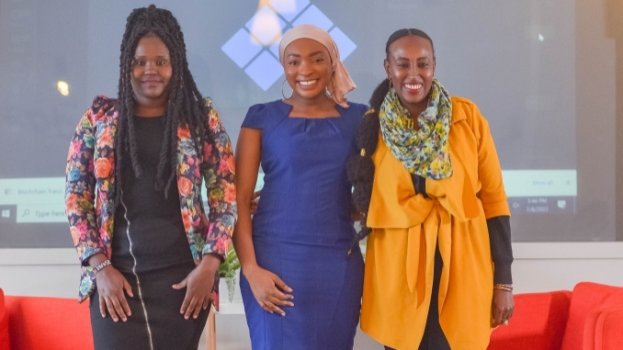K
Kathleen Martin
Guest
According to Boston Consulting Group, just about 15% of data scientists are women, an apologetic imbalance in favor of men. In Africa, more women get discouraged to take part in data professions and the enrollment of women in data studies steadily declines. DARA Big Data gives insights into this issue in a report derived from its last five years of free data science hackathons. In 2017, 74% of applicants were male, while 26% were female. This figure grew to 35% in 2019. It explained that not enough women felt comfortable and bold enough to apply for data courses. “Many of the female applicants experience some form of self-doubt in their technical skills that may inhibit them from applying,” the report stated.
This present shortage of female data personnel to analyze and collate statistics on women’s issues gives reason to question how solutions to their systemic and cultural oppression are created and proffered. It also probes if any of the available information, collated by mostly men, represents the true state of events. The lack of specific data on reports of sexual harassment, domestic violence, and discrimination against women in politics, education and the workforce, is a clear indication of this disparity.
Seemingly, the importance of women and girls in reporting and collating data on the biggest challenges Africa faces today and the harmfulness of exclusivity in data dissemination are overlooked. In one example, a trained software with text collected from Google news was asked to complete the statement, “Man is to computer programmer as woman is to [blank].” The trained software replied with “homemaker.” It is almost as if the perspectives of women in solutions development sectors should not exist.
Alexa Ighodaro who has worked on data analysis projects says, “Some people believe data science/analytics to be a field that requires high coding abilities and society has trained us to believe coding is mostly handled by the male gender. There is a perception that data science is a manly profession as it involves statistics and coding.”
In numerous universities across the continent, tech and data faculties have more males contained in them than females at different academic levels. According to Ingressive For Good Africa, there are about two women out of every 10 people studying data science. In organizational settings, female data personnel are almost nonexistent as only 26% of them get employed. Despite the steady rise of data scientists across different regions in Africa, gender parity and equality in the field have not been attained.
Continue reading: https://www.pastemagazine.com/tech/africa/women-in-tech-africa-disparity-data-analysis/
This present shortage of female data personnel to analyze and collate statistics on women’s issues gives reason to question how solutions to their systemic and cultural oppression are created and proffered. It also probes if any of the available information, collated by mostly men, represents the true state of events. The lack of specific data on reports of sexual harassment, domestic violence, and discrimination against women in politics, education and the workforce, is a clear indication of this disparity.
Seemingly, the importance of women and girls in reporting and collating data on the biggest challenges Africa faces today and the harmfulness of exclusivity in data dissemination are overlooked. In one example, a trained software with text collected from Google news was asked to complete the statement, “Man is to computer programmer as woman is to [blank].” The trained software replied with “homemaker.” It is almost as if the perspectives of women in solutions development sectors should not exist.
Alexa Ighodaro who has worked on data analysis projects says, “Some people believe data science/analytics to be a field that requires high coding abilities and society has trained us to believe coding is mostly handled by the male gender. There is a perception that data science is a manly profession as it involves statistics and coding.”
In numerous universities across the continent, tech and data faculties have more males contained in them than females at different academic levels. According to Ingressive For Good Africa, there are about two women out of every 10 people studying data science. In organizational settings, female data personnel are almost nonexistent as only 26% of them get employed. Despite the steady rise of data scientists across different regions in Africa, gender parity and equality in the field have not been attained.
Continue reading: https://www.pastemagazine.com/tech/africa/women-in-tech-africa-disparity-data-analysis/

